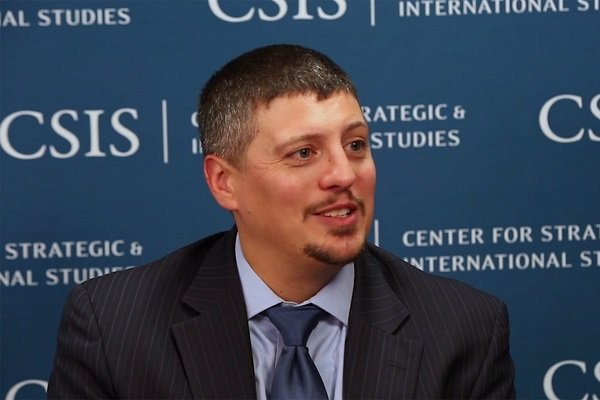Changing label of Iran’s sanctions to make it harder to remove sanctions: Nephew

Richard Nephew, who served as the lead sanctions expert for the US team negotiating with Iran, is of the opinion that “It is true that this is the Trump Administration's intention: to make it much harder to remove the sanctions in the future because now entities and individuals are considered "terrorists" in addition to "proliferators".”
The fellow at the Center on Global Energy Policy at Columbia University, says that it is harder to see US pressure on Iran “the president has the authority to remove these designations no matter what they are, provided that they are not required explicitly under US law. The term "nuclear-related sanctions" has no legal standing in US law, only in the JCPOA as a term of art.”
Following is the text of the interview:
Q: The United States recently sanctioned Iran's central bank under the label "fight against terrorism". What changes has this label made to Iranian trade?
A: I do not believe that this decision has made any real difference in Iranian trade, though this is because the existing sanctions were already sufficiently severe as to preclude much of it. This is a difficulty that the United States will soon have, as there are few "new" sectors, entities or individuals to sanction that has not already been sanctioned or affected by other measures already in place. Of course, the existing measures will continue to have very serious economic impacts so the degree to which measures are "new" is only meaningful as part of the political narrative for the Administration.
Q: A Few days ago US sanctioned IRISL. IRISL was sanctioned beforehand and changed its sanction’s label. What is the effect of changing the label of IRISL on shipping the agricultural commodities, food, medicine, and medical devices to Iran via IRISL?
A: This measure will potentially have a meaningful effect. Previously, IRISL was sanctioned but only as an element of the Iranian government. The sanctions did not preclude foreign business with IRISL. Now, the sanctions will create real costs for foreign entities or individuals who do business with it, essentially recreating the situation that existed for IRISL prior to the JCPOA.
Ultimately, I suspect that this measure will have less impact on Iranian humanitarian trade than could be anticipated, simply because there are other cargo carriers that will be prepared to operate in and with Iran. But, there are many fewer of them today than in the past.
To address the immediate humanitarian risks, the United States has permitted transactions to "wind down" with IRISL for six months. This is an unusual situation and reflects a sense in the US government that taking precipitous action here could be damaging, if not to humanitarian trade than to the narrative that the United States is not trying to deny such trade.
Q: President Trump has changed some labels of Iran sanctions. Since removing them are not under the President’s authorization. Then, the US future president is not able to remove them that were under the label of Iran nuclear program sanctions. What is your opinion?
A: It is true that this is the Trump Administration's intention: to make it much harder to remove the sanctions in the future because now entities and individuals are considered "terrorists" in addition to "proliferators."
Ultimately, though, the president has the authority to remove these designations no matter what they are, provided that they are not required explicitly under US law. The term "nuclear-related sanctions" has no legal standing in US law, only in the JCPOA as a term of art. Grouping those sanctions made sense in 2013-2015 but it may make sense to broaden the definition of what sanctions could be removed if a future deal is negotiated with Iran in a future administration.
It is also worth noting: the fact that so many US officials and their supporters outside in the think tank community have said explicitly that they are changing the nature of these sanctions from "nuclear-related" to something broader in order to make it hard to negotiate a new deal with Iran will make it politically easier for a future Administration to change the terminology used.
Q: Are there other sanctions to be imposed on Iran?
A: Almost certainly. There are entities and individuals not sanctioned, sectors not targeted thus far. But, of course, there is a difference between whether such sanctions could be imposed and whether those sanctions will be impactful in excess of the pressure created by existing measures. In my view, there are few sanctions that could yet be imposed on Iran that would have the power of the measures already imposed.
Source: Tehran Times
